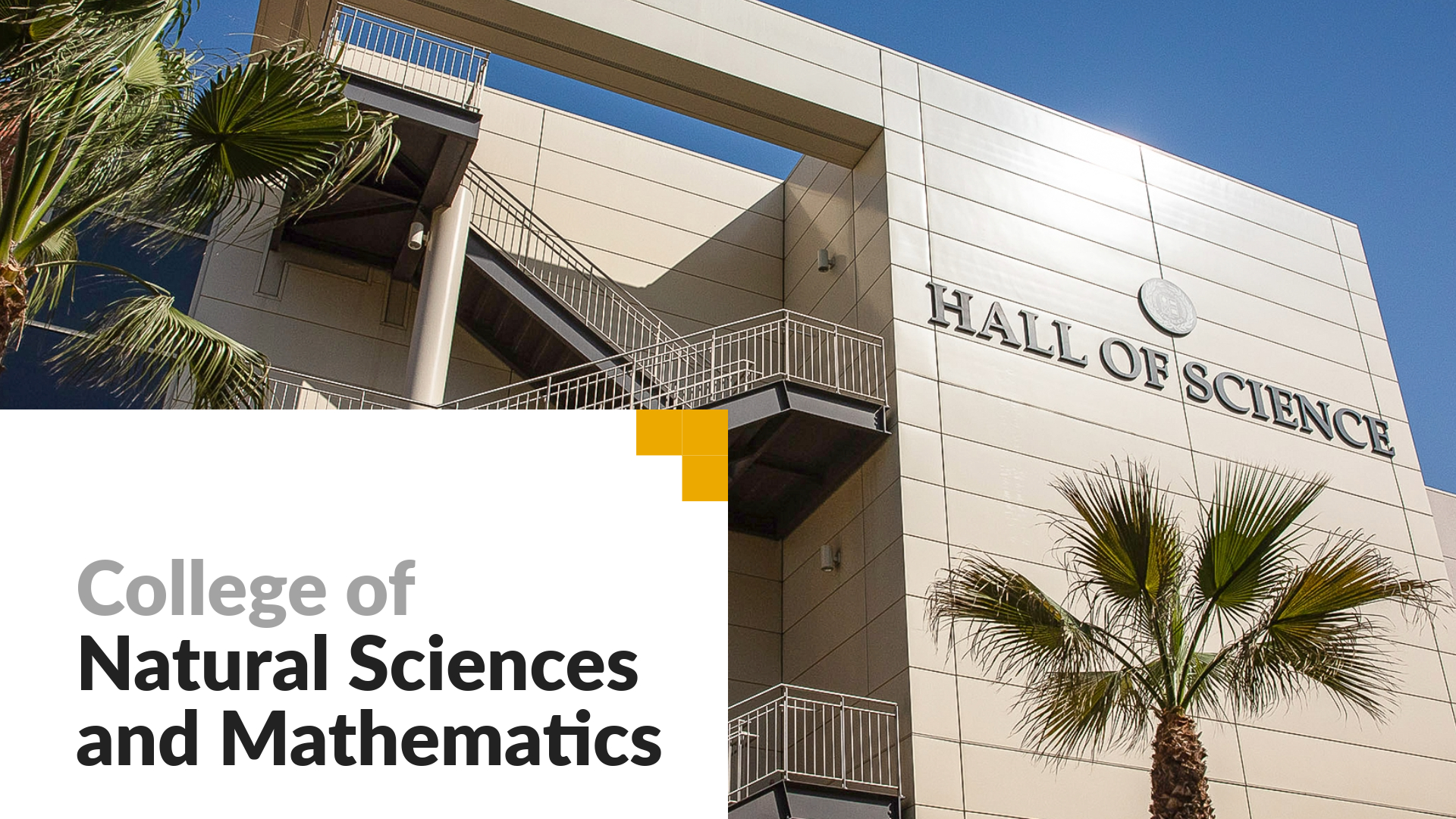Enriching Student Learning

Connecting students with meaningful research, skill-building, and job development opportunities is a hallmark of our efforts to amplify student learning at CSULB.
In the College of Natural Sciences and Mathematics, two new programs launched this past academic year represent strides in our mission to promote intellectual achievement — a pillar of our Beach 2030 strategic planning effort. Through these initiatives, CNSM faculty and leaders are building knowledge across disciplines while investing in high-impact practices that help retain students in STEM. At the same time, new research opportunities enhance our university’s prominence, advancing CSULB’s regional and global engagement and its role in the broader economic, civic, workforce, and cultural priorities of our region.
Through the Keck Undergraduate Research Experience Incubator, or KURE, CNSM is incorporating authentic research experiences in lower division courses — a practice that historically has not been widely offered. Because opportunities to pursue meaningful research are primarily tailored to upper-division students, freshmen and sophomores often report feeling disappointment about their lack of involvement in the science community. By embedding these opportunities into lower division courses, the KURE Incubator reaches more students from an array of backgrounds, providing dynamic experiences that aim to enhance their academic careers and foster their retention in STEM degrees.
To measure the impact of this program, CNSM leaders will collect data from a large sample size of participating students to assess the relationship between level of research engagement and retention. In its first year, with invaluable participation by 20 faculty, the KURE Incubator engaged 1,222 students in research experiences through 14 lower division courses and field research opportunities. From municipal water quality to gene editing, research modules covered an array of topics, many of which addressed local community concerns and real-world questions that will be the subjects of scientific careers.
In the same vein, the newly launched Research and Development Gateway addresses modern research needs and workforce development challenges that have the potential to enrich both our campus community and the region at large. A collaboration between Dr. Barbara Taylor, associate dean for research in CNSM, and Dr. Tyler Reeb, director of research and workforce development at the Center for International Trade and Transportation (CITT), the R&D Gateway explores collaborative opportunities between CSULB and industry partners to lead innovation and problem-solving for the benefit of our region and learners at The Beach.
Leveraging sponsored research, creative activities, and industry and business partnerships as a means to create knowledge on our campus and advance student learning is a tenet of our university’s priority to promote intellectual achievement. The R&D Gateway has already led to the launch of successful talent-pipeline pilot programs in partnership with Gannett Fleming, a global engineering firm, and Jet Propulsion Laboratories, a global leader in space exploration and satellite technology. This initiative addresses the need for more industry-facing university infrastructure and systems to catalyze a new era of research and workforce development at CSULB.





